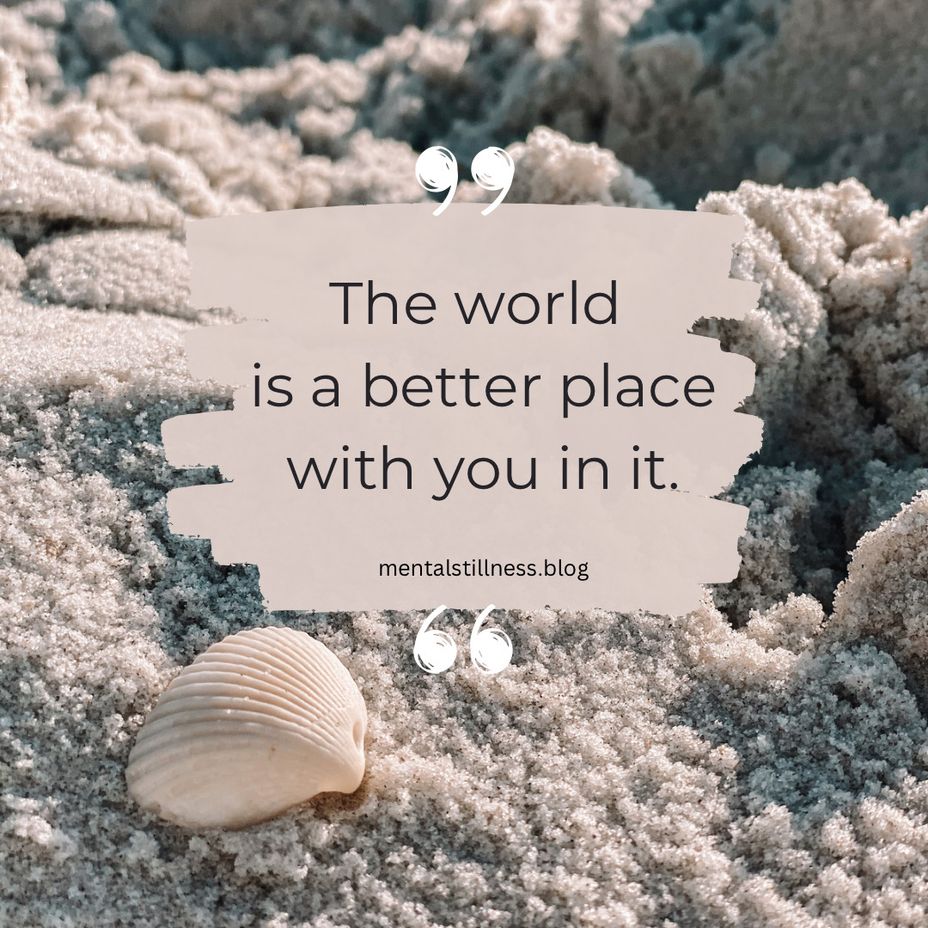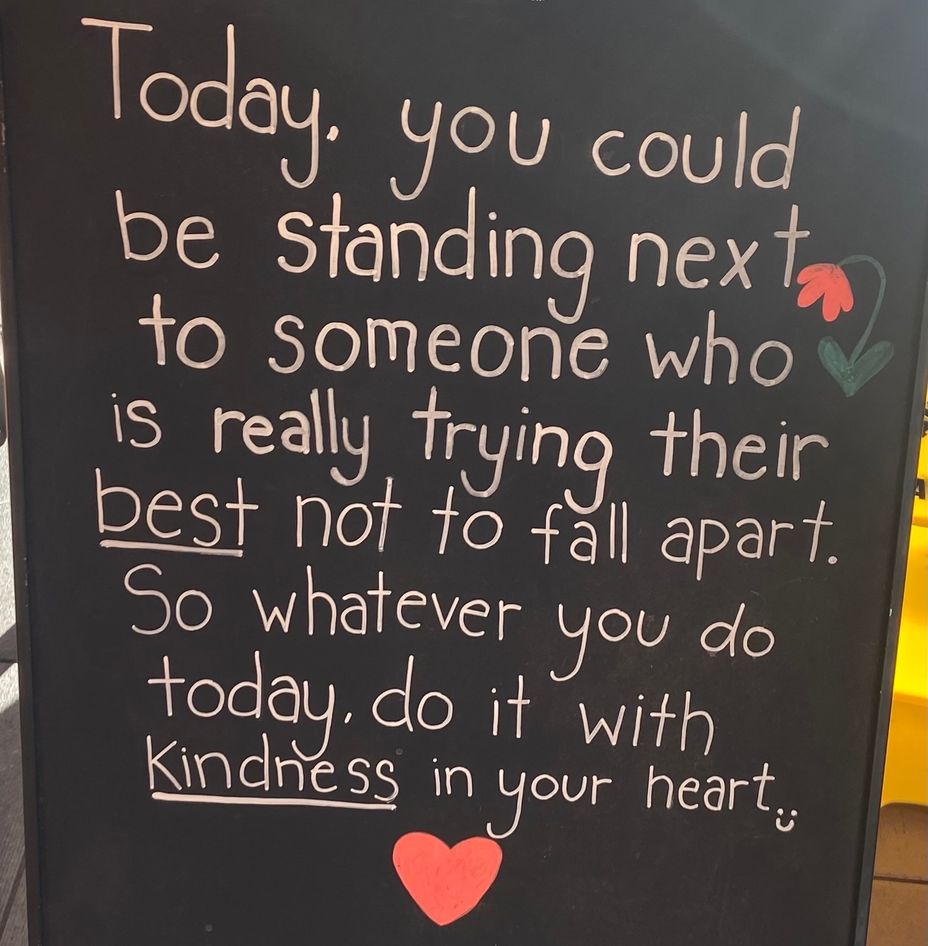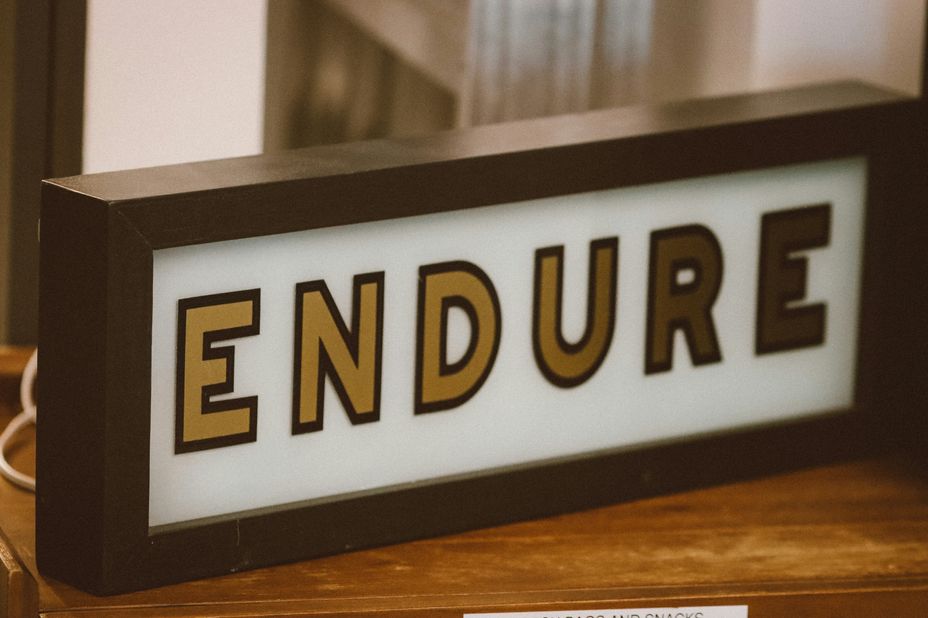I'm new here!
Hi, my name is Emelle9. I'm undiagnosed and I suspect that I have ADHD as well as other mental health challenges.
Hi, my name is Emelle9. I'm undiagnosed and I suspect that I have ADHD as well as other mental health challenges.

You matter! You are wanted! You are loved! You are seen and known! You’re a fighter! You are worth it!
#MentalHealth #MightyTogether #ADHD #Anxiety #BorderlinePersonalityDisorder #Grief #MoodDisorders #OtherMentalHealth #Trauma #SocialAnxiety #PTSD #ObsessiveCompulsiveDisorder #Autism #Depression

dedicated to all the mighties making it through another day 💪🏽💝
#Depression #MentalHealth #Anxiety #Grief #ObsessiveCompulsiveDisorder #Trauma #MyalgicEncephalomyelitis #OtherMentalHealth #ChronicFatigue
Hi, my name is menot93. I'm here because I need new tools and strategies to work with intense anxiety, and to help loved ones with other mental health struggles in a moment that is especially hard on vulnerable minds.
#MightyTogether

Hi everyone!
The Clover Project is a mental health initiative offering free support. We send out regular emails to help with stress, anxiety, and overall mental well-being.
It’s completely free, and you can sign up easily by scanning the QR code on the flyer below.
Feel free to share this with anyone who might benefit. 😊
#MentalHealth #Anxiety #Suicide #Depression #OtherMentalHealth #Other
👋 all I have been a part of the mighty since early 2017 when I was diagnosed with Chiari Malformation type 1 and Syringomylia. Rheumatoid, and hyper Thyroid issues run in the family along with other autoimmune disorders, dupitrins contractions and planter fashitis (pretty thats mispelked). We also have Mental health or personality disorders as well.
I didn't ever really come on here till now. After having my son in 2021 I developed severe postpartum depression. It eventually disappeared on its own kinda, it just lessened to depression.I was battleing addiction that had started because of my Chiari diagnosis and decompression surgery. In summer of 2022 i got clean and stayed clean. I went to a psychologist who was in the company of my rehab/general therapist. I was diagnosed with general anxiety, social anxiety, depression, bipolar, and having borderline personality disorder traits. I have recently VERY recently got away from trauma and abuse. I am almost 💯sure I have C-PTSD. Are there other forms of trauma bonding, abuse, PTSD out there what are common symptoms? I have something really weird going on and I dont even know how to really explain it . It i don't know if it's a symptoms concerning my Chiari and surgery site or if its a mental, psychological issue from the trauma. Any similar backgrounds out there? Even not general answers would be appreciated as well. Thnx everyone.
#ArnoldChiariMalformation , #ChiariMalformation , #Syringomyelia #autoimmune Disorders #MentalHealth #BorderlinePersonalityDisorderBPD #DepressiveDisorders #BipolarDepression #ComplexPosttraumaticStressDisorder #behavioralhealth #Trauma #symptoms #DissociativeIdentityDisorder #BorderlinePersonalityDisorder #PTSD #mental #Anxiety #BipolarDisorder ##Nightmares #MoodDisorders #SocialAnxiety #OtherMentalHealth #neuro
#Anxiety #Bipolar2 #MentalHealth
I’m meeting with a mediation specialist on Friday to discuss options for mediation. I’m also wanting to confirm if I have any other mental health issues going on, specifically bipolar 2.
I’m anxious about it but also happy to be seeking needed help.

🙌 Yes!!
Yep, I am Also your confidence booster!
&
Your cheerleader ( 📣 🙃🤭🙌🙌 another fun fact about me - I was the first freshman in my high school to make the Varsity football cheerleading squad And I Also was a cheerleading coach in high school for junior high school kids And I did all of that while also teaching dance and helping to run a dance school in high school too, while also continuing my own dance training daily because my first love since the age of 3 has always been the beautiful art of dance- or like one of my all time favorite Professional dance companies that I paid to see live in NYC was called- “Shaping Sound”.
Yeah, I Really miss those days of Energy.
These days, if I have any energy or let’s say the infrequent but still a huge gift of having more than a little energy, it’s funny in that I can recognize the immense difference in a blink of an eye.
Oh, yeah, and about the badass part of this quote image 👆
Not having energy and still doing all that I do, That is what makes me Badass, is how I look at it- after straightening out my Perspective and Reframing my Headspace.
And honestly without my onset of major depressive disorder at age 34 (I am now 52), I would never have really achieved Becoming Badass! And, I always admired Badass people of all kinds.
Always remember this whole hard thing called life and life transitions requires us to take on new, healthier Perspectives Always, And this is what I learned from the Headspace app is also called “Reframing” (best app in the world, at least when I used it daily in 2017 - 2019)
And I have specific, Large, photo album folders on my phone - 1 titled “Reframing Headspace” from my saved key takeaways from each Headspace course lesson I took (that Of Course I will be sharing with you in my group Resilience and Mindfulness) and I have another specific, Large, photo album folder titled “Perspectives” that Of Course I will be sharing with you in my group titled Resilience and Mindfulness)
To anyone seeing this post outside of my group - here is the direct link Resilience and Mindfulness and Join Us for So Much & because literally Everyone needs to learn both Resilience and Mindfulness (and, I don’t stop there with what goodies I share To Help YOU 😁🙃)
#MightyTogether #MentalHealth #ChronicFatigue #ChronicIllness #Disability #Anxiety #GeneralizedAnxietyDisorder #MajorDepressiveDisorder #DepressiveDisorders #Selfharm #SocialAnxiety #ADHD #Agoraphobia #MDD #MoodDisorders #MultipleSclerosis #IfYouFeelHopeless #MyCondition #CheerMeOn #ChronicFatigueSyndrome #OtherMentalHealth #MotorDisorders #ChronicPain #Mindfulness #Selfcare #FamilyAndFriends #Relationships #AnorexiaNervosa #EatingDisorders #BingeEatingDisorder #Arthritis #BipolarDisorder #BipolarDepression #Fibromyalgia #Caregiving #Cancer #CrohnsDisease #DownSyndrome #EhlersDanlosSyndrome #Epilepsy #Addiction #Lupus #EhlersDanlosSyndrome #BorderlinePersonalityDisorder #CerebralPalsy #ObsessiveCompulsiveDisorder


When you think of chronic pain and depression, you might assume they’re separate conditions. One manifests physically, while the other affects mental health. However, there actually is a complex interplay between these two conditions. Many people experiencing chronic pain also grapple with depression and vice versa.
Each condition can exacerbate the other. Chronic pain can lead to feelings of helplessness and isolation, potentially triggering depressive symptoms. Depression can amplify somatic responses, including migraines, IBS, back pain, and more.
The Link Between Depression and Chronic Pain
Depression and chronic pain often form a vicious cycle. Persistent pain can trigger negative emotions and depressive symptoms, while depression can manifest as unexplained physical discomfort, such as migraines and other somatic issues. This connection often creates a cycle between the two that can be difficult to break without effective treatment.
Quality of Life
Chronic pain can significantly impact one’s quality of life by depleting your energy, reducing motivation, and limiting daily activities. If you are engaging less with people, work, and life in general, it can intensify feelings of depression, further perpetuating this cycle. Depression can also make it harder to cope with pain, as it can reduce motivation and energy levels. Additionally, depressive symptoms can manifest as physical symptoms, including increased pain sensitivity and muscle tension, making it even harder to feel motivated.
Brain Pathways
When you are living with chronic pain, it can make it more likely to experience both pain and depression. This connection originates from underlying neural mechanisms involving specific brain structures, chemicals, and pathways. Increased pain intensity is often associated with a higher likelihood of developing depressive symptoms. Psychotherapy helps open new pathways in the brain that can help heal mental health and chronic pain issues.
Limiting Factors
Chronic pain can also limit physical activity, social interactions, and work productivity, leading to feelings of isolation and frustration.
Reduced physical activity and social isolation can serve to increase stress levels, which can further exacerbate both chronic pain and depression symptoms.
Treatment Strategies
Chronic pain generally includes more than just mental health treatments. However, people often underestimate the need for psychotherapy and attention to mental health when it comes to treating chronic pain, such as chronic migraines, back pain, IBS or other forms of pain. Old traumas can also cause chronic pain and lead to depressive symptoms in the present, as well.
Here are some ways people approach the confluence of depression and chronic pain together:
Pain Management: Medications, physical therapy, and other interventions to manage pain
Psychotherapy: Psychodynamic, psychoanalytic, and somatic-based therapy to work through depression, traumas, or other mental health struggles that may also be manifesting in the body.
Medications: Antidepressants and other medications to manage depressive symptoms, depending on severity
Lifestyle Modifications: Regular exercise, healthy diet, and adequate sleep are a few things that can help improve mood and reduce pain.
Mind-Body Techniques: Mindfulness meditation, yoga, and emotional regulation exercises can help with physiological stress and help with emotional grounding.
By understanding the connection between chronic pain and depression, you can take a more rounded approach to your wellbeing. When I work with people on the mental health side of chronic migraines (which often includes depression and anxiety), one of my specialties, I generally recommend that you have physical support as well, whether it's a neurologist, and/or alternative approaches. I find that the combination of various treatment options helps to address the depression and chronic pain cycle together.
#Depression #Migraine #ChronicPain #Anxiety #MentalHealth #IrritableBowelSyndromeIBS
Hi, my name is Loop19. I am living with these and a few other mental health diagnosis and I am looking for people who understand the daily grind of that.
#MightyTogether #Anxiety #BipolarDisorder #Migraine #AutismSpectrumDisorder #RheumatoidArthritis #EatingDisorder #Grief #PTSD #ADHD